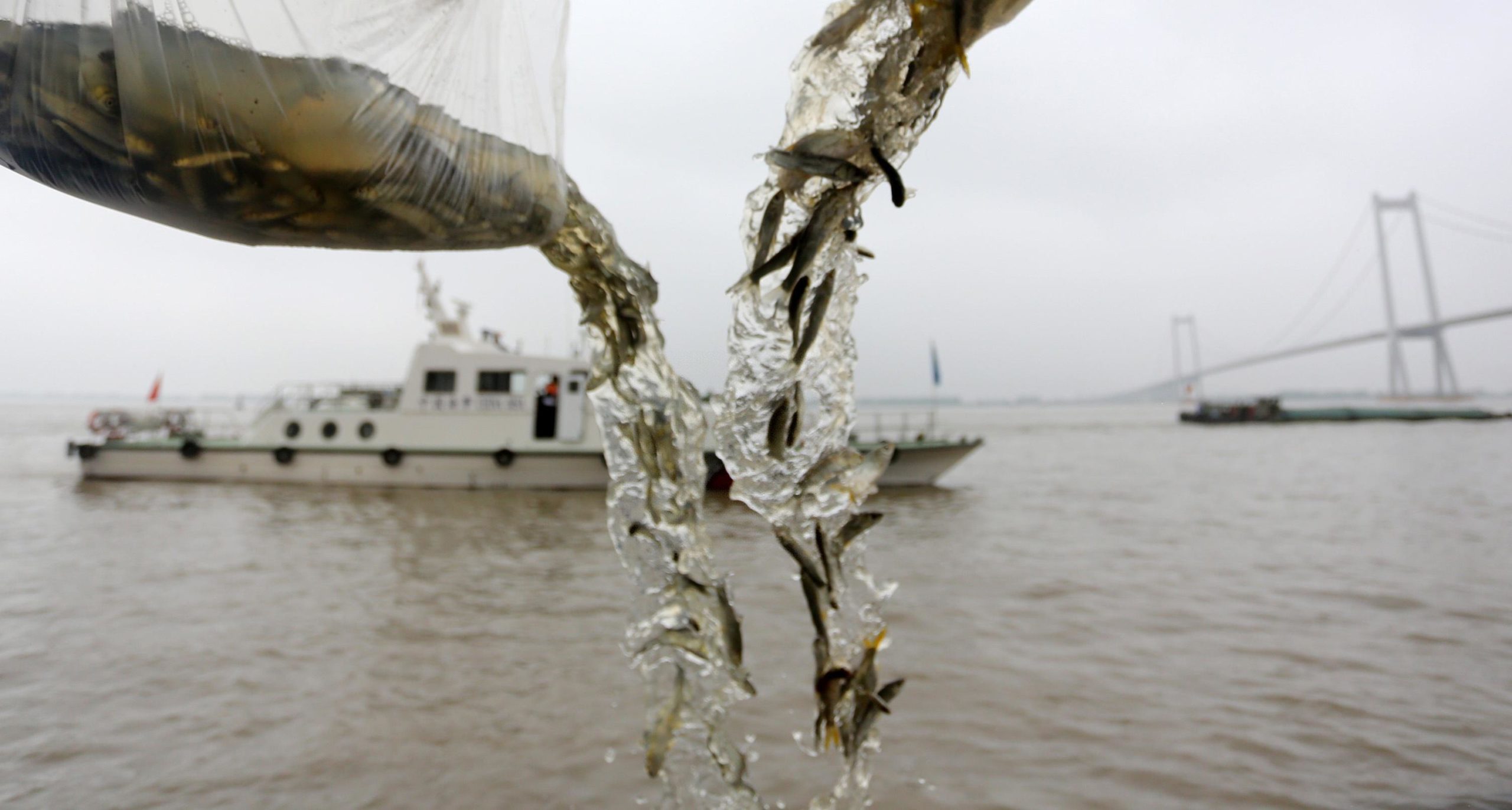China bans fishing on the Yangtze River for 10 years
China bans fishing on the Yangtze River for 10 years

The Ministry of Agriculture and Rural Affairs has issued a new set of regulations (in Chinese) prohibiting commercial fishing in key areas along the Yangtze River for the next 10 years. The ban took effect in China on January 1, and comes at a critical moment for the Yangtze’s fish stocks and biodiversity, which is suffering from overfishing and excessive pollution.
The fishing moratorium will be enforced in 332 conservation areas in the Yangtze Basin. By the end of this year, the ban will be extended to all natural waterways along the main stem and major tributaries of the river, such as Poyang Lake and Dongting Lake.
The day before the ban went into force, on New Year’s Eve, Xinhua published an article, reporting on how a group of ex-fishermen watched their boats being dismantled in late December: “They stood in solemn silence as an excavator dismantled one fishing boat after another in deafening roars.”
The government will compensate fishermen who have lost their jobs with onetime payments of up to 60,000 yuan ($8,590) per household. The article says that the moratorium will cause the scrapping of 110,000 fishing boats, and force 280,000 fishermen to quit their ancestral line of work.
China has been toughening restrictions on commercial fishing on the Yangtze since 2002, when it introduced a seasonal fishing ban that lasted three months each year. In 2016, the period was extended to four months. But the government’s moderate efforts to police commercial fishing were futile: Fish stocks in the Yangtze declined drastically over the past decade, with a knock-on effect on other species that feed on fish. In 2018, the Global Times reported that the population of the four major types of freshwater fish in the Yangtze River — herring, grass carp, silver carp, and bighead carp — had decreased by more than 90 percent since the 1980s.
Environmentalists and sustainable fishing advocates have cited these dire numbers to call for more serious action to protect aquatic life and especially rare species in the river. Cáo Wénxuān 曹文宣, an ichthyologist who has been advocating for a 10-year ban for many years, told the China Dialogue in 2013 that the fish stocks in the Yangtze were on the verge of collapsing, putting the entire ecosystem of the river at serious risk.
Yú Kāngzhèn 于康震, vice minister of agriculture and rural affairs, told Xinhua that the moratorium was a “key move fighting depleting biological resources and degrading biodiversity in the Yangtze River.” As to local fishermen who had to forgo their jobs, Yu suggested they “work as patrollers and protectors of the river as members of the team executing the fishing ban.”
As the longest river in Asia, the Yangtze stretches about 4,000 miles and passes through 11 different provinces in China. It’s home to more than 350 species of fish, some of which are critically endangered. It’s also home to the Three Gorges Dam, which is China’s largest and most ambitious water project to date.






